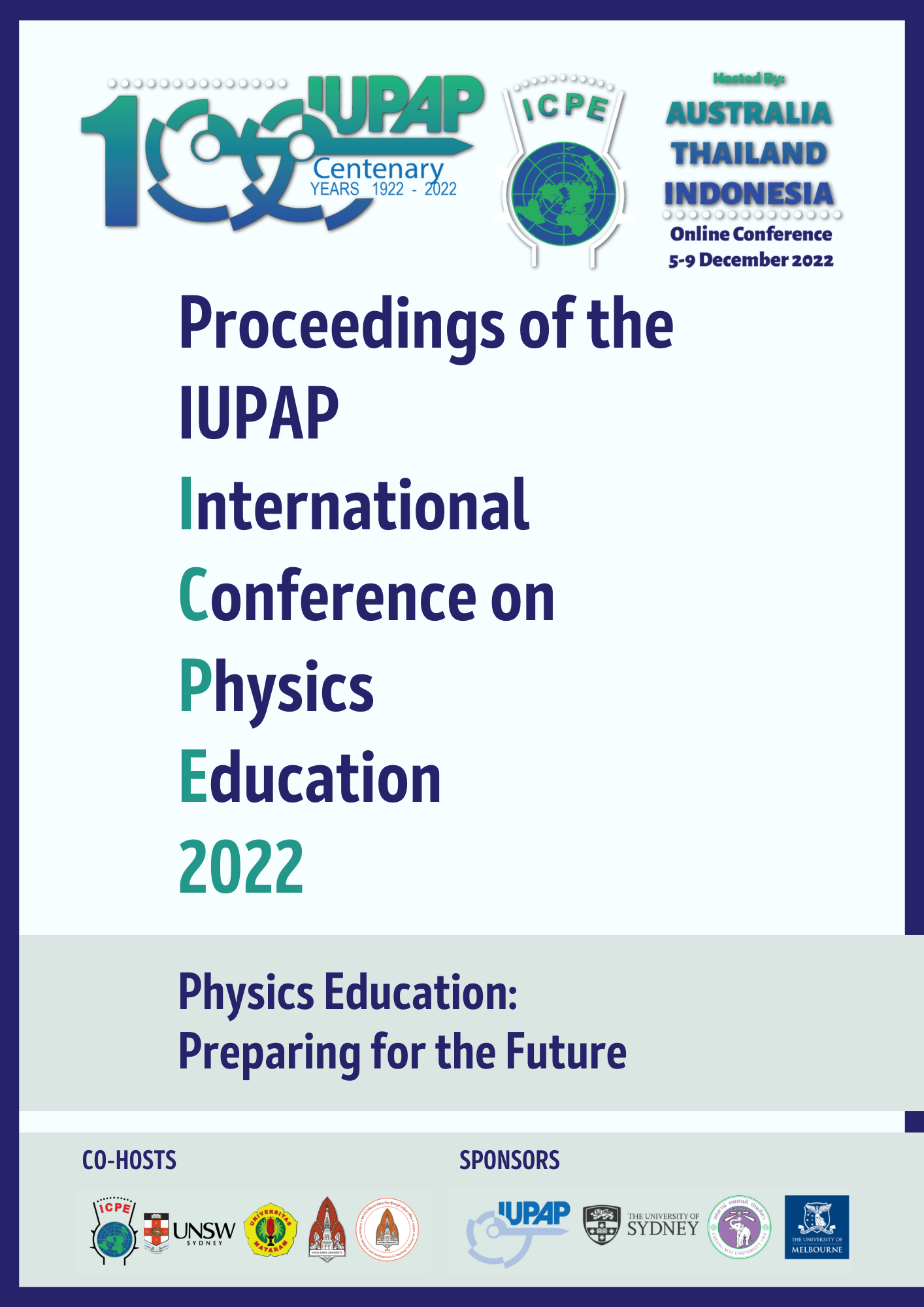Remote learning on DC circuit analysis by using the sets of video demonstrations and PhET simulations for preparing readiness of pre-service teachers
Keywords:
Remote learning, Circuit analysis, PhET simulationsAbstract
The COVID-19 pandemic has spread around the world, it has not only severely affected global economic growth but also education. Online learning activities were developed and integrated in blended courses. We are presenting a study, where teaching and learning sequences were designed on: electric current; resistance; series and parallel circuit connection; and electrical power in DC circuits. These were proceeded by video demonstrations and PhET simulations based on guided inquiry activities. The sample consisted of 32 fourth-year teacher students enrolled in a science teaching for secondary school course. The goal of this study was to enhance students’ performance on a DC circuit analysis task while also improving their readiness for emergency remote learning of the designed online learning activity sets.
To assess the students’ performance, we developed and administered pre- and post-tests using the “Determining and Interpreting Resistive Electric Circuit Conceptual Test”, which consists of 28 questions. The questions were selected from standard physics textbooks. They were divided into 6 categories: 1) electrical power, 2) series circuit, 3) parallel circuit, 4) complex circuit, 5) EMF of batteries in circuit and 6) closed circuit, opened circuit and short circuit. The six-point rating scale self-assessment (0 to 5) was administered to survey the confidence level of students in their answers.
The results of students’ performance were analyzed by average normalized gains (<g>). The <g> value of this group was 0.51. The highest <g> value of 0.82 was in series circuit, whereas the lowest <g> value of 0.18 was in closed circuit, opened circuit, short circuit. The <g> of the other 4 topics were in the medium gain regime. The overall confidence level of students was increased from 2.15 to 3.77. Moreover, students’ reasoning to their answer showed that about 60% of the students could analyze the current, the resistance, and the power in the DC circuits. The results indicated that the designed activities could help improve students’ analysis performance and boost students’, pre-service teachers’, readiness and confidence for online learning.
REFERENCESHalliday, D., Resnick, R., & Walker, J. (2016). Principles of Physics Extended, International Student Version. India: Wiley India Pvt. Ltd.
Serway, R. A., & Jewett, J. W. (2018). Physics for scientists and engineers. Cengage learning.
Downloads
Published
Issue
Section
License
Authors who publish with the Proceedings of the International Conference on Physics Education 2022 agree to the following terms:
a) Authors retain copyright and grant the journal right of first publication with the work simultaneously licensed under a Creative Commons Attribution License (https://creativecommons.org/licenses/by/4.0/) that allows others to share the work with an acknowledgement of the work's authorship and initial publication in this journal.
b) Authors are able to enter into separate, additional contractual arrangements for the non-exclusive distribution of the journal's published version of the work (e.g., post it to an institutional repository or publish it in a book), with an acknowledgement of its initial publication in this journal.
c) Authors are permitted and encouraged to post their work online (e.g., in institutional repositories or on their website) prior to and during the submission process, as it can lead to productive exchanges, as well as earlier and greater citation of published work (See The Effect of Open Access - http://opcit.eprints.org/oacitation-biblio.html).
Privacy Statement The names and email addresses entered in the Proceedings of the International Conference on Physics Education 2022 site will be used exclusively for the stated purposes of this journal and will not be made available for any other purpose or to any other party.
